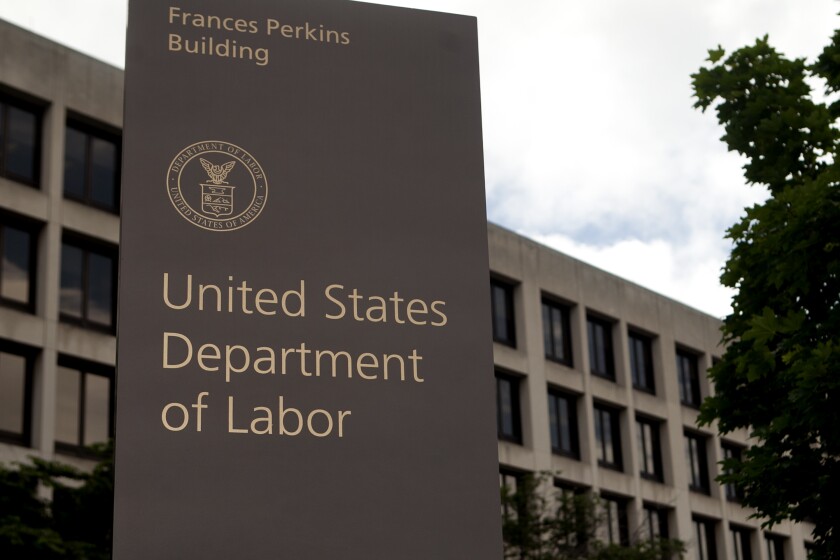Payrolls fell sharply in December, as the U.S. Bureau of Labor Statistics reported Friday that employment declined by 140,000 jobs amid the continuing economic fallout from the novel coronavirus pandemic. Nevertheless, the accounting and bookkeeping sector added 2,300 jobs last month.
The unemployment rate remained at 6.7 percent despite the job cuts, which were the steepest since last April. The BLS revised upward the figures for both October and November, with the October figures going up by 44,000, from a gain of 610,000 jobs to a gain of 654,000. The change for November was revised upward by 91,000 jobs, from a gain of 245,000 jobs to a gain of 336,000. With those revisions, employment in October and November combined was 135,000 more than previously reported. Therefore, the loss of 140,000 jobs in December seems even more dramatic, although those figures are likely to be revised as well.
Bryan Robertson is a seasoned commercial insurance professional with over 15 years of extensive experience in the industry. As a 5th-generation Central Floridian, he brings a deep connection to the region, understanding the unique challenges and opportunities that businesses face. Throughout his career, Bryan has demonstrated a complex understanding of risk management, coverage negotiations, and client relationship management, helping middle market and larger corporations secure comprehensive insurance solutions tailored to their unique needs. In the fall of 2020, Bryan, along with two partners, acquired Hatcher Insurance.
Under their leadership, the company has experienced significant growth, expanding from a team of 5 to over 30 employees. This rapid expansion reflects their commitment to excellence and their ability to adapt to the evolving needs of the market. Rooted in the rich family heritage of Central Florida business owners, Bryan is committed to contributing to the growth and prosperity of his community through his business.
Bryan is recognized for his leadership and mentorship abilities, having led teams to achieve record industry new business growth. Leading to recognition by the Orlando Business Journals' class of 2022 – Top 40 under 40.
Date: Wednesday, May 14, 2025
In December, job losses in leisure and hospitality and in private education were partially offset by gains in professional and business services, retail trade, and construction. Average hourly earnings increased 23 cents to $29.81. The leisure and hospitality industry lost 498,000 jobs, with three-quarters of the declines in food services and drinking places, which lost 372,000 jobs. Since February, employment in leisure and hospitality is down by 3.9 million, or 23.2 percent.

Separately, CBIZ, a Top 100 Firm based in Cleveland, released its own monthly Small Business Employment Index, which showed a slight increase in small business hiring of 0.32 percent in December. Hiring declined a bit in the Central U.S. by 0.15 percent but rose in the Northeast by 1.18 percent, the Southeast by 1 percent and the West by 0.44 percent. There were increases for states that opened up from lockdowns on or before May 15 of 0.97 percent and states that opened up from lockdowns after May 15 of 0.23 percent.
While some industries tracked by CBIZ increased their hiring, growth did not occur across the board. Hiring increased in healthcare, financial services, real estate, nonprofits and retail trade, yet decreased in technology and life sciences, transportation, and accommodation and food services. The negative trend in accommodation and food services could be due to renewed COVID-19 restrictions.
“Obviously we are in a bit of a transitional period as the cases of coronavirus surge back up, and you’ve got significant population centers starting to lock down again,” said CBIZ executive vice president Philip Noftsinger. “In terms of the labor market, you may be bending that arc back toward either a declining labor market or a reduction. Ironically the CBIZ number went in the other direction. I don’t have a perfect answer for that, other than there are small businesses all over the country that are significant employment centers that are in larger areas that may be under lockdown, so perhaps that’s got a little bit to do with it.”
The incoming Biden administration will be inheriting multiple challenges with the economy, the pandemic and a sharply divided populace. “I’ll be interested to see as the transfer of power occurs what is our immediate response and how do we chart a different course to try to solve these problems for the country,” said Noftsinger.
Jobs for accounting professionals still seem to be in demand, despite some declines last year in the BLS data. “Professional services tend to be a bit more resilient if you’ve got a beta factor for the overall labor market,” said Noftsinger. “They have a lower beta factor.”



